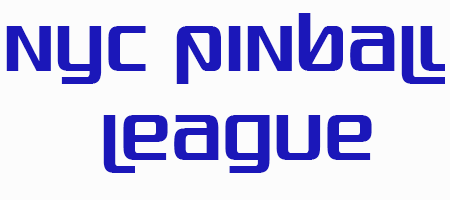The Echo Chamber of Success: A Solopreneur’s Silent World
The taste of copper still lingered on my tongue at 2:45 PM, a faint metallic tang that always accompanies a particularly sharp surge of adrenaline. My screen, still warm from a flurry of data refreshes, glowed with numbers that confirmed it: the most profitable hour I’d ever stitched together, a precise cascade of conversions that felt like hitting the jackpot on a one-armed bandit whose mechanics I’d personally designed. I leaned back, a faint tremor running through my hands, and then… nothing. The silence in my office, which is to say, my spare bedroom, was a physical weight. The victory, so vibrant on screen, felt thin, abstract, almost unreal in its solitary manifestation.
This is the secret, isn’t it? The one they don’t plaster across the glossy ads for digital nomadism or the aspirational entrepreneur courses. They promise freedom, the open road, working from anywhere with just a laptop and a dream. And yes, there’s freedom, a vast, undeniable expanse of it. But it’s a freedom often purchased with profound isolation. My closest coworkers are a perpetually updating spreadsheet, a Slack channel with precisely zero active conversations, and my boss? A merciless real-time graph of profit and loss that cares nothing for my emotional state or the 75 hours I’ve poured into this week. It’s an arrangement that promises liberation but often delivers a gilded cage.
I’ve spent 5 years chasing this specific brand of autonomy, thinking I was building something expansive, something that would give me back 35 minutes of my day, or maybe even 125. Instead, I’ve found myself in a professional vacuum. There’s no water cooler to lean against, no impromptu brainstorming session that sparks a truly wild, unexpected idea. There’s no mentor to glance at when a critical decision hangs in the balance, no one to share the agonizing burden of a wrong turn, or the euphoric high of a win. Every single risk, every single anxiety, every single pivot-it all rests squarely, irrevocably on my shoulders. It amplifies everything.
Success Rate
Success Rate
I remember Parker T.-M., a hazmat disposal coordinator I met briefly at a bizarre industry mixer five months ago. He talked about his work with a strange blend of grim pride and camaraderie. His days involved literal containment, dealing with tangible threats, but he never talked about doing it alone. He described teams, protocols, shared responsibility. They’d high-five after a particularly tricky cleanup, the relief etched on their faces. They might be dealing with toxic waste, but at least they had each other. My work, while less physically dangerous, sometimes feels like I’m navigating an invisible, digital toxic spill, and every containment strategy, every cleanup, is a solo mission.
Perhaps my biggest mistake was believing that sheer efficiency and relentless optimization could fill the human gaps. I focused on the metrics, the conversion rates, the cost per acquisition, the lifetime value of a customer – all vital, yes, but also entirely devoid of empathy. I’d wake up at 5:05 AM, spend my days tweaking campaigns, analyzing performance across 15 different platforms, and then find myself staring at the wall at 8:15 PM, utterly drained, with nothing but an improved ROI to show for it. The numbers are incredibly eloquent, they tell a powerful story of performance, but they don’t tell you if you’re actually making a difference in a human sense, or if you’re just a cog in a more efficient digital machine.
It’s this precise ache, this profound longing for shared context, that often leads solopreneurs down questionable paths, trying to replicate connection through digital facsimiles.
Insight
Connection
I remember experimenting with various ad formats, chasing the elusive perfect click. I’d pour over data, convinced that the next permutation of a specific campaign type would unlock something profound. It was during one of these deep dives, trying to understand how different ad placements impacted user experience and, ultimately, conversion, that I considered exploring new avenues. Even with strategies like popup ads, which could drive significant traffic, the underlying success still felt detached from genuine human interaction. You see the numbers, you celebrate the uplift, but it’s an abstract celebration. You’re analyzing human behavior through a lens of data, trying to understand it, predict it, monetize it, but you’re not actually *with* those humans.
This isn’t to diminish the power of analytics, or the strategic genius involved in running a successful online business. Those are crucial. But the human brain, evolved over hundreds of thousands of years to thrive in tribes of 150 people, isn’t built for this kind of sustained professional solitude. We’re wired for collaboration, for shared stories around the fire, for the subtle cues of body language that affirm our place in the collective. When those primal needs are unmet, something essential withers.
I’ve often reread the same sentences in my own reports, not because I didn’t understand them, but because I was searching for a hidden meaning, an emotional resonance that the data simply couldn’t provide. It was a compulsion, a symptom of the lack of external validation or contrasting perspectives. If I could just articulate the success in 25 different ways, perhaps one of them would resonate, would echo back a sense of shared accomplishment. It doesn’t. It just echoes.
The Shift in Perspective
My perspective on what it means to be ‘your own boss’ has shifted significantly over these past 5 years. I once championed the notion of ultimate individual control, the idea that every outcome was a direct result of my singular effort. While that’s partially true, I now recognize the immense, invisible scaffolding that traditional employment provides: the built-in community, the casual mentorship, the shared burdens, the collective wins. We criticize the corporate grind, and often for good reason, but we overlook the profound human needs it inadvertently fulfills.
I still wouldn’t trade the freedom for a cubicle, not entirely. There’s a particular kind of exhilaration in charting your own course, in the knowledge that every dollar, every success, every failure, is truly your own. But it’s a journey I wish came with a more visible, tangible map for navigating the psychological terrain. The real wealth isn’t just in the profit margins or the passive income streams; it’s in finding a way to integrate our deeply human need for connection into a world that increasingly pushes us towards individual digital silos. That, perhaps, is the next great frontier for the digital solopreneur. To build not just businesses, but bridges. To find a way to high-five the air, and have someone, somewhere, high-five back.



